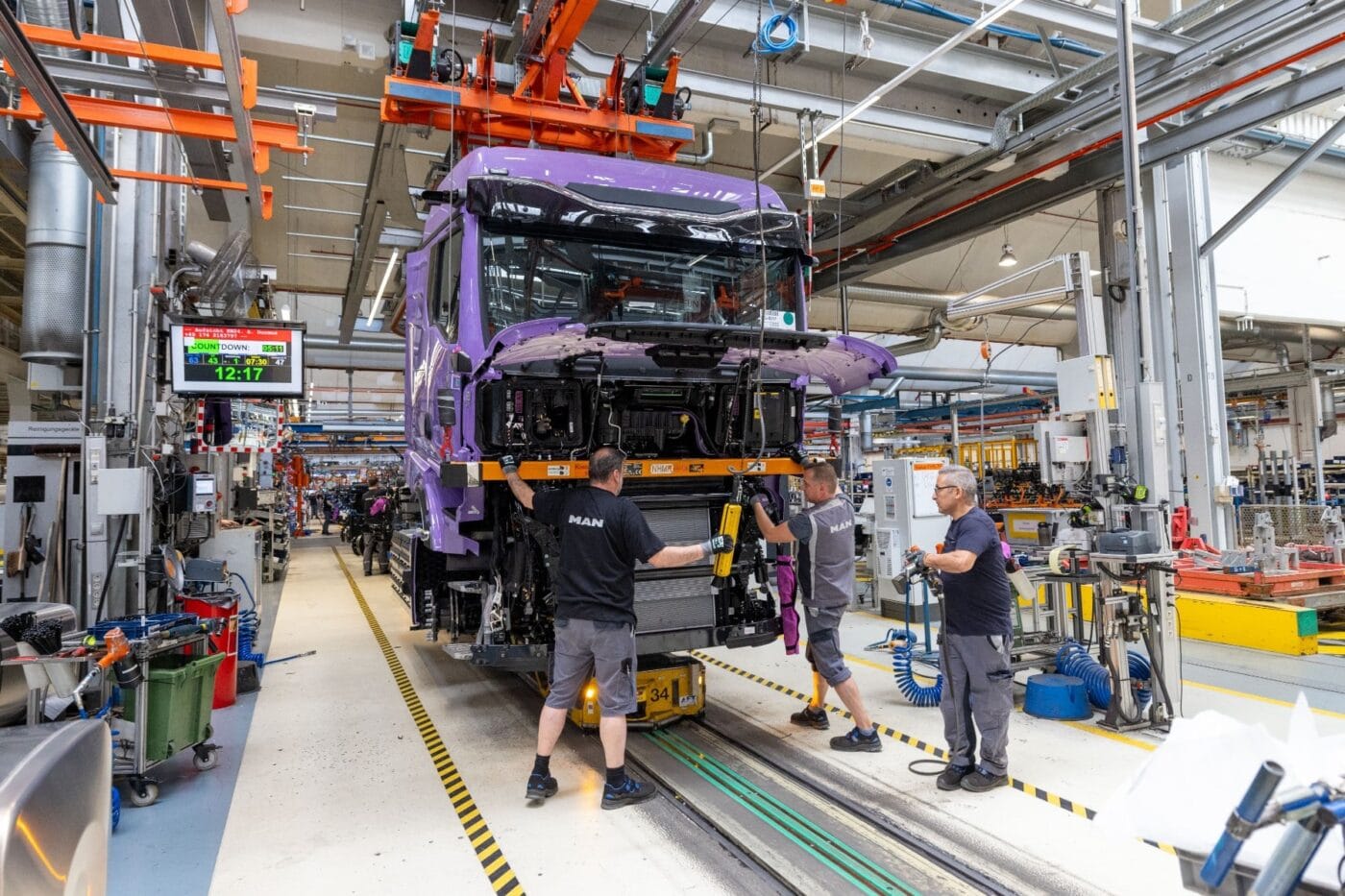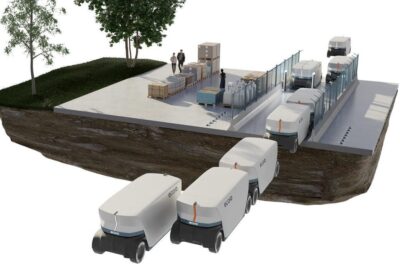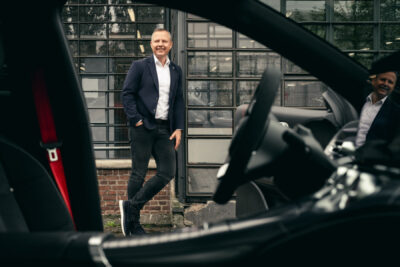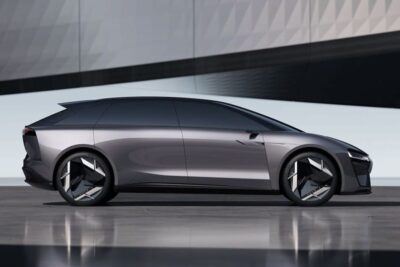MAN announces major job cuts in Germany
The 2,300 jobs spread across several locations are to be cut over a period of ten years, as a company spokesperson told DPA. The reduction is to be carried out in an “absolutely socially responsible” manner, with no redundancies planned. As more than 2,300 employees will retire during the same period, MAN will “continue to hire people and remain a domestic commercial vehicle manufacturer.” Only then, with around 13,000 employees instead of more than 15,000. “All our production sites in Munich, Nuremberg, Salzgitter and Wittlich are to be retained,” said the spokesperson.
MAN justifies the job cuts with the current market situation and new competitive environment. There is talk that the company must “adapt to the persistently weak truck market in Germany” and will also “further improve its cost position.” In addition to sluggish sales, high electricity and labour costs are also weighing on the company, and growing competition from Asia is putting pressure on returns.
At the same time, investments are high, as electric trucks must be established on the market alongside diesel trucks and production must be adapted accordingly. “We are now entering a phase of high investment and must generate sustained profits in order to expand our product portfolio,” the spokesperson is quoted as saying.
1,300 jobs to be cut in Munich alone
The main location in Munich is expected to be hardest hit by the announced cuts, with 1,300 jobs to be lost there alone – more than half of the total. 600 jobs are to be cut in Salzgitter and another 400 in Nuremberg. However, MAN did not specify which areas would be affected and to what extent.
The Bavarian locations are particularly important for electric trucks: MAN manufactures the battery packs for its electric models in Nuremberg, which are used in everything from the twelve-tonne eTGL to the heavy-duty eTGX – in varying quantities depending on the vehicle. And in June, the manufacturer announced that it would also use the 89 kWh electric truck batteries in electric buses in the future, starting with the Lion’s City 10 E. MAN’s heavy electric truck has also been in series production at the Munich plant since June. The extent to which the promising electric projects will be affected is currently unknown.
In their response, the IG Metall trade union and the works council have little faith in the company’s commitment to German production, as MAN’s plans also include relocations to Poland. “If, in future, all parts for a truck are manufactured in Poland and transported from there to Munich solely for assembly, it is obvious that at some point assembly in Munich will also be up for discussion,” says Sybille Wankel from IG Metall. And Karina Schnur, chairwoman of the general works council, accuses the management of not seriously negotiating alternatives. “At no point was management prepared to seriously discuss alternatives to the relocation plans,” Schnur is quoted as saying. “This is a slap in the face for the people here in Munich who work hard every day for MAN.”
MAN CEO Alexander Vlaskamp said in an interview with electrive a few weeks ago that the commercial vehicle market was “very tense due to the economic situation.” He was also referring to the situation among his own customers, i.e. logistics companies and freight forwarders, who often cannot afford to invest in electric vehicles without subsidies. “Around 80 per cent of transport companies are SMEs – they may not cover 80 per cent of the transport volume, but they form the backbone of the industry. For these companies in particular, the initial investment is difficult, even with favourable operating costs. They usually do not benefit from special tax depreciation allowances. That is why they need targeted support,” said Vlaskamp, passing the ball to politicians: “We have done our homework and developed very good products. Unfortunately, however, the implementation of the promised framework conditions, e.g. with regard to the charging infrastructure, is proving to be more time-consuming than perhaps expected. However, this is not in our hands. But we are supposed to bear the risk for this, keyword: penalty payments. This does not add up: the whole debate about technological openness is therefore not a long-term industrial policy!”
handelsblatt.com (in German)
This article was first published by Sebastian Schaal for electrive’s German edition.





0 Comments